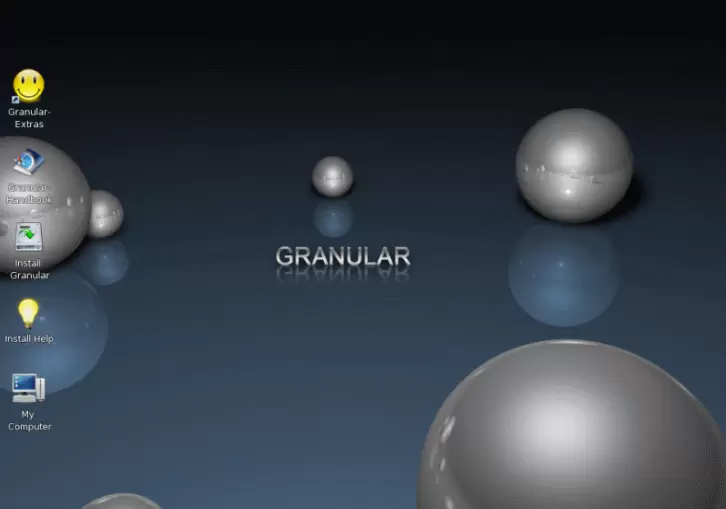Understanding Granular Recovery Technology: How it’s Revolutionizing Data Loss Prevention
What is Granular Recovery Technology?
Granular recovery technology refers to advanced backup and recovery methods that enable restores at a highly specific, granular level.
Rather than traditional all or nothing restores of entire systems or drives, granular recovery allows retrieving individual files, folders or even parts of folders.
This level of precision provides powerful prevention against permanent data loss from incidents like accidental deletion, malware infections, hardware failures, and more.
Granular recovery software monitors a computer system or network in real time, tracking every single change at an unprecedented level of detail.
It maintains a comprehensive historical record of all file system modifications down to specific blocks of data.
Any creations, edits, renames, moves, copies, writes, and deletions are continuously noted as they occur.
This extensive change logging capability is what unlocks the potential for granular recovery. It allows browsing file and folder histories to select prior versions from a particular date or time stamp.
Administrators can target partial restoration of individual documents section by section. Files may even be recovered to alternate locations, virtual machines, cloud services or external media as needed.
How Granular Recovery Technology Works Behind the Scenes:
So how exactly do granular recovery solutions achieve this ability at such a microscopic level? There are two core mechanisms that work in tandem:
- File System Minifilter Granular recovery software integrates directly with the operating system through minifilter driver interfaces.
- This positioning allows intercepting all requests made to read, write or modify files on disk. Minifilters quietly note extensive metadata about changes in real time logs.
- Shadow Copy Snapshots Shadow replica Snapshots Shadow copies, also referred to as volume snapshots, seize factor in time pix of the document device contents at common durations inclusive of each 15 minutes. These auto generated restore points provide a fallback archive to browse prior versions.
When combined together, mini filters and shadow copies enable time travel functionality. Admins can virtually navigate through the shadows to view historical states of directories and files.
Selecting an older restore point reconstructs folder hierarchies from the past as live mounted volumes.
Under the hood, minifilter logging and shadow copy infrastructure work as the engines powering granular recovery’s remarkable capabilities.
The technology seamlessly records perpetual change in meticulous detail without disrupting typical workflows.
Benefits of Granular Recovery Technology:
There are compelling advantages that come with investing in a granular recovery solution:
Precise Recovery
Accidental deletions, ransomware attacks, data corruption incidents no longer mean inevitable data loss or downtime. Targeted restoration down to specific documents means business can resume uninterrupted.
Version Rollback
Need to undo accidental edits, exposures, or malware modifications? Granular recovery allows viewing earlier versions of files and rolling back changes within seconds.
Lower Storage and Licensing Costs:
Rather than storing full drive, system, or server images as traditional backups do, only capturing changed blocks requires far less total storage usage over time. Licensing is often based on physical devices or users, keeping expenses reasonable.
Enhanced Privacy and Compliance:
Some regulations like HIPAA require audit trails of health records for 7 years. Maintaining exhaustive change logs satisfies such policies while keeping sensitive data secure from prying eyes.
Improved Productivity:
The security blanket of knowing work is reliably guarded at a file level reduces stress. Users can focus effort on core tasks rather than worrying changes could disappear forever in an instant.
Flexibility:
Files may be recovered whenever and wherever needed. On premises servers, virtual machines, remote offices, laptops, home PCs, mobile devices, and cloud portals all become restoration targets as activity resumes seamlessly.
Granular Recovery Technology in Action:
To better illustrate the innovation granular recovery brings, consider a practical scenario:
The accounting department of a fast growing manufacturer relies on spreadsheets to handle invoicing, payables, receivables and financial reporting for hundreds of clients each month. One morning, an employee accidentally overwrites the previous quarter’s sales figures with new data before submitting to executives.
Without granular recovery protections, this mistake could translate to weeks of manual re entry or risking incorrect numbers in official documents.
Using their software, managers can instantly roll back to the intact previous spreadsheet version from only moments before.
A few basic clicks is all it takes to undo the changes, saving countless labor hours and avoiding inaccuracies.
This real world example underscores why granular recovery surpasses traditional backups for many organizations.
The responsiveness and granular controls let businesses bounce back rapidly from common data errors that could spiral otherwise. A few minutes of downtime can transform productivity grind to a halt without it.
Evaluating Granular Recovery Options:
With benefits so compelling, it makes sense for companies both small and large to research available granular recovery vendors. When comparing solutions, consider:
Supported Environments
Evaluate compatibility with your specific operating systems, virtual/physical servers, databases, business applications and infrastructure as workloads grow.
Storage Allocation
Unlimited options provide the most flexibility long term but can be more expensive. Weigh storage needs against usage based plans or device caps carefully.
Recovery Flexibility
Can files be accessed locally, in the cloud, on external drives or transferred between servers? Mobile access abilities matter too for remote workforce percentages.
Pricing Models
Per host, per user and unlimited capacity offerings vary greatly. Factor TCO of monthly, annual, or perpetual licenses based on 5 year financial projections.
Support Quality
Judge uptime guarantees, response times, online help resources and reputation should issues arise needing resolutions ASAP.
Trial Experience
Hands on testing lets you experience real restoration workflow hurdles to ensure ease of administration long term.
Integration Capabilities
Consider API options for tying recovery into existing monitoring, backup and automation tools over time.
Moving Forward with Enhanced Data Protection:
In today’s digital business landscape where data fuels operations, adequate data protection is no longer just a “nice to have” but essential for continuous uptime and viability.
Granular recovery innovations have changed the prevention game by restoring lost or corrupted files instantly rather than relying on risky full system restores alone.
As incidents like cyberattacks and natural disasters increase due to hybrid work trends exacerbating vulnerabilities, leaning on granular recovery options provides powerful disaster avoidance.
By carefully analyzing available solutions based on unique IT environments and growth projections, organizations can select the best fit to safeguard their most critical asset information for optimal productivity.
The rewards of minimized disruption and enhanced compliance far outweigh upfront investments.
FAQ
Q. What are the GRT backups?
A. GRT is used by many backup solutions to allow recovery of the smallest data set within a larger backup set.
Q. What are the benefits of backup granularity?
A. Faster Recovery.
Q. What are the levels of backup granularity?
A. Full, cumulative, and incremental.
Q. What is farm backup vs granular backup?
A. Granular backup and export is a more read intensive and processing intensive operation than farm backup.
Q. What is the history of GRT?
A. In the bustling streets of commerce that characterized the Madras of 1964, GRT Jewelers came into being as a brainchild of Shri G. Rajendran.
Conclusion
In summary, granular recovery technology represents a major technological shift for data protection strategies. With its ability to restore precise segments of files and documents, businesses avoid lengthy downtime from data loss scenarios.
This precision and flexibility empower organizations to continue operations uninterrupted. As threats to information grow in scope and sophistication, granular recovery ensures file level backup and versioning remain ahead of emerging risks.
By implementing a vetted solution, companies strengthen resilience against ransomware, human errors and natural disasters through historical change tracking. The rewards of uptime preservation and compliance certainly outweigh costs for proactive adoption.













